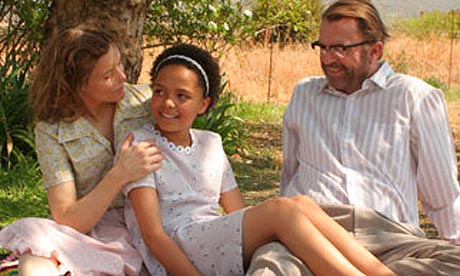
This quietly intelligent drama, based on a true story, finds a new way of dramatising race, class and society in apartheid-era South Africa, and it boasts fine performances by Sophie Okonedo, Sam Neill and Alice Krige as a family whose refusal to conform was either heroic or tragi-comic or merely dysfunctional. Or perhaps all three.
Okonedo plays Sandra Laing, born in the early 1960s to pillars of the white Afrikaner community: Abraham Laing (Neill) and Sannie Laing (Krige). Sandra is dark-skinned, corresponding to what at the time was known as "coloured". Furious at persistent whispers that his wife must have been unfaithful, Abraham takes a blood test to prove paternity and launches a court action to prove that due to a Mendelian quirk, buried black ancestry in white parents can turn up in one's children.
His legal battle to classify his child as "white" is as sensational as that undertaken by the father in Rattigan's The Winslow Boy. But it is successful. Sandra is legally entitled to go to "white" schools, sit in the "white" section in waiting rooms and dine in "white" restaurants. The parents serenely ignore the pop-eyed double-takes of local racists and encourage their daughter to do the same. For a while, it almost works. Are they in denial? Or is their "reclassification" an inspired way of challenging not merely racism but the monolithic concept of race itself?
Either way, Abraham's stand looks less glorious when Sandra falls in love with a black man, Petrus Zwane (Tony Kgoroge). Abraham is livid and his "white" daughter's love affair has a kind of topsy-turvy Romeo-and-Juliet quality. The father's rage and anguish tears the family apart. Sandra becomes marginalised from her own existence, unable to believe in herself as black, white or anything else. But her quiet courage is moving and this has the painful clarity of something drawn from real life.

